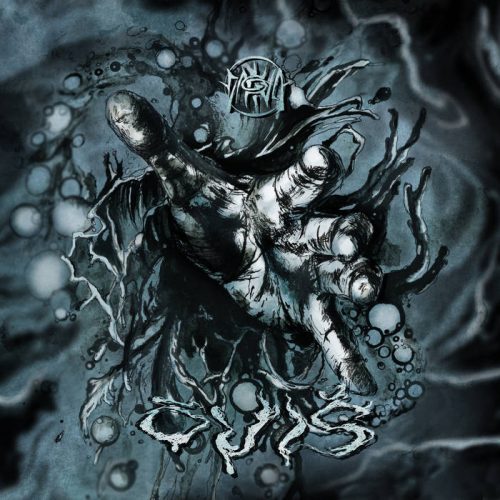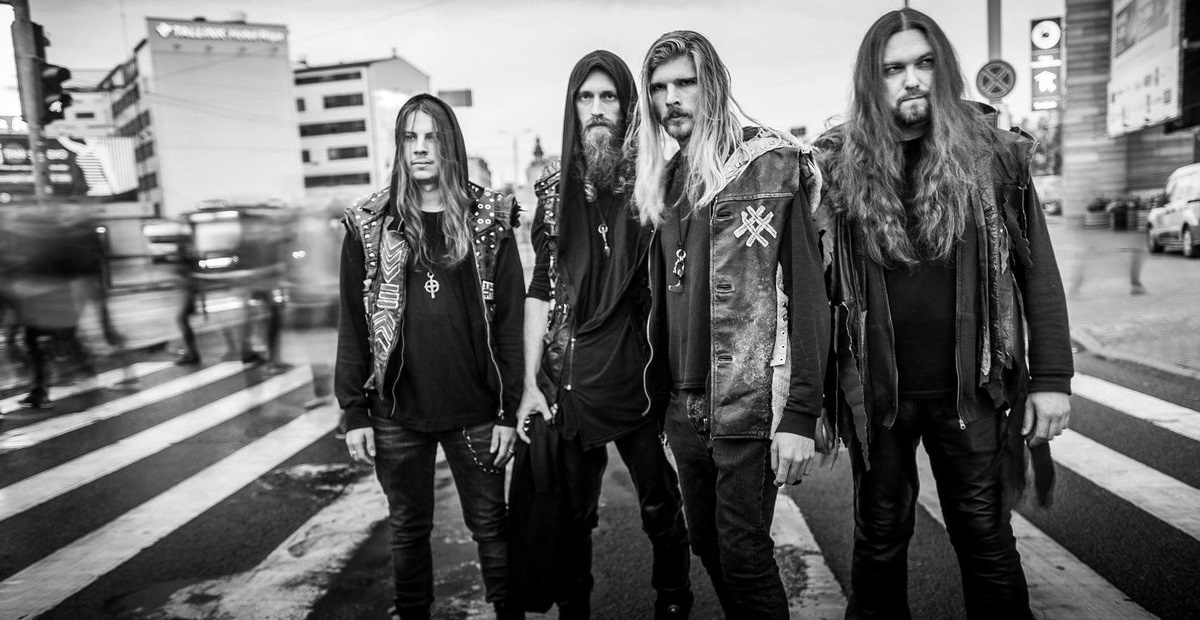
(Andy Synn takes another look back at another album from last year that went unheralded and unsung)
There’s lots of reasons why a band might not get the attention and exposure they deserve (trust me, I know), and I could write reams upon reams about all the different factors which come into play when promoting a new album (successfully or unsuccessfully).
But, ultimately, sometimes it just comes down to “wrong place” and/or “wrong time”.
That certainly seems to be the case when it comes to Darrva and their second album, Ōviš, as not only does the band hail from a location (Latvia) that’s often overlooked, but their decision to release the record right in the middle of the festive season last year meant it was quickly lost in the shuffle, and it was only by mere chance that I stumbled across it a few weeks ago myself.
I’m very glad I did though, as the band’s sound – an intriguing mix of Black, Death, and Progressive elements that doesn’t fit neatly into any one particular box – is well worth shouting about and, hopefully, at least some of you will agree with me.

Generating comparisons with both the girthy, groove-heavy guitar work of latter-day Bethlehem and the proggy technicality of the soon-to-be-departed Dark Fortress, songs like densely-packed opener “Pārmija” and its chunkier, even more aggressive companion, “Atmodas Vilnis”, quickly let you know that while Ōviš may not strictly be a “Black Metal” album (though “Liesma” certainly puts that assertion to the test) it’s definitely a far more “blackened” affair than its predecessor (2017’s Laika Rats) and, in my opinion, also far superior.
But what’s particularly interesting to note, in my opinion at least, is that – as good as the first half is (with the impressive drum work of Brūss Kalniņš being worthy of particular praise) – Ōviš only really hits its stride in the second half, which finds tracks such as “Grimšana” and “Zeme Dag” (both of which allow bassist Mārtiņš Jansons a chance to steal the spotlight for once) and the back-breaking, gravity-distorting grooves of “Plaisa” and “Svētdienas Dziesma” achieving the same sort of post-Prometheus apotheosis that made Horizon Ablaze‘s stunning 2018 album, The Weight of a Thousand Suns, such a fantastic piece of work.
It’s the album’s longest, and most ambitious, number – “Noslēpums” – which really steals the show, however, taking the band’s captivating concoction of thick, thrumming riffs, eerie melodic motifs, and punishingly technical percussion and adding an extra dose of grim grandeur and progressive panache (reminiscent, once again, of the very best of Dark Fortress) into the mix, without sacrificing an ounce of intensity or over-egging the proverbial pudding in the process.
So my advice is not to overlook these guys any more, and to keep an eye (and an ear) peeled for whatever they do next. They may not be the biggest band out there… but they’ve got the potential to be one of the best, given enough time and support.
